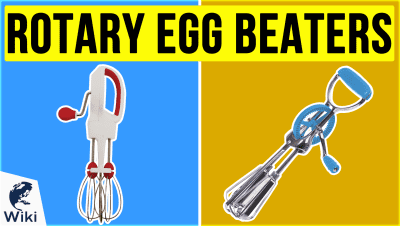5 Organizations Helping People Cope With Grief
Losing a loved one is never easy, and one of the most important things you can have during a period of mourning is support. While friends and family are an important part of a person's support system, it can also help to reach out to professionals who can offer additional guidance and groups of people with similar experiences who know what you're going through. The organizations listed here have programs designed to help parents, kids, and anyone who is dealing with a death. This video was made with Ezvid Wikimaker.
Groups That Help People Cope With Loss
| Name | Mission |
|---|---|
| GriefShare | Help people find hope and healing after the death of a friend or loved one |
| Modern Loss | Provide a place to share the unspeakably taboo, unbelievably hilarious, unexpectedly beautiful (and incredibly difficult) terrain of navigating life after a death |
| Good Grief | Build resilience in children, strengthen families, and empower communities to grow from loss and adversity |
| Rachel's Gift | Partner with hospitals to assist parents through the initial phase of infant loss through a base of caring and knowledgeable volunteers |
| GriefHaven | Provide hope, support, education, and love for grieving parents, siblings, and those who support them |
Causes Of Grief
Grief may be triggered by the death of a loved one. People also can experience grief if they have an illness for which there is no cure, or a chronic condition that affects their quality of life. The end of a significant relationship may also cause grieving. Everyone feels grief in their own way. But there are common stages to the process of mourning. It starts with recognizing a loss and continues until a person eventually accepts that loss. People's responses to grief will be different, depending on the circumstances of the death. For example, if the person who died had a chronic illness, the death may have been expected. The end of the person's suffering might even have come as a relief. If the death was accidental or violent, coming to a stage of acceptance might take longer.
The Five Stages Of Grief
One way to describe grief is in five stages. These reactions might not occur in a specific order, and can occur together. Not everyone experiences all of these emotions:
- Denial, disbelief, numbness
- Anger, blaming others
- Bargaining
- Depressed mood, sadness, and crying
- Acceptance, coming to terms
Dealing With Sudden Loss
When To Contact A Medical Professional
Most people are able to come to terms with grief with the help of their friends, family, and support groups. But if you're experiencing more severe symptoms of grief, like these, you should reach out to your provider for help:
- You can't deal with grief
- You are using excessive amounts of drugs or alcohol
- You become very depressed
- You have long-term depression that interferes with your daily life
- You have suicidal thoughts
Movies That Can Help Children Understand Grief
While grief is difficult for people of all ages, it can hit kids especially hard. If you have little ones having trouble wrapping their minds around the concept of loss, it can be helpful to show them movies made for young people that tackle the subject in thoughtful ways. Here are a few examples:
| Title | Year | Target Audience Age |
|---|---|---|
| Finding Nemo | 2003 | 4 & up |
| Up | 2009 | 4 & up |
| My Girl | 1991 | 8-12 |
| Fly Away Home | 1996 | 8-12 |
| Onward | 2020 | 8 & up |
| Hugo | 2011 | 12 & up |
How Grief Affects Your Brain And What To Do About It
In Depth
Regardless of your age or background, dealing with the death of a loved one can be incredibly difficult, and the feelings of pain and guilt may linger for months or even years. Luckily, there are countless resources available for those who need reassurance or professional help. Listed here, in no particular order, are some organizations dedicated to helping others cope with loss.
First up, at #1, we have GriefShare, a biblical, Christ-centered recovery support group where one can find help and healing for the hurt of losing a loved one. Its groups meet weekly, and in each session, participants will watch a video seminar featuring experts on grief and recovery. This is followed by a discussion where members will get the opportunity to talk about what's going on in their lives.
Each session is self-contained, which means that members do not have to attend in sequence and may continue with GriefShare through the next 13-week cycle and view any of the videos they haven't seen. Those who are seeking encouragement may also subscribe to their free daily emails, which contain uplifting messages designed to help one through the healing process.
Those who are seeking encouragement may also subscribe to their free daily emails, which contain uplifting messages designed to help one through the healing process.
At #2, Modern Loss is a place to share the unexpectedly beautiful terrain of navigating your life after a death. The website grew out of two friends' separate experiences with the sudden deaths of loved ones and their struggle to find resources that weren't too clinical or overtly religious. It features essays from those who have experienced all kinds of loss and creative ideas for exploring your own grief.
Their book of the same name is a collection of essays that offers a roadmap for navigating grief in the modern age. In it, founders Rebecca Soffer and Gabrielle Birkner, along with more than 40 contributors, share their provocative stories on themes including sex and intimacy after loss, technology, and the secrets we harbor and uncover.
Next, at #3, is Good Grief, which is dedicated to building resilience in children, strengthening families, and empowering communities to grow from loss and adversity. Their model is peer support, which consists of bringing grieving people together to form a community that helps one another. They facilitate peer support through a variety of methods, including play, music, art, drama, and reflective sharing.
They facilitate peer support through a variety of methods, including play, music, art, drama, and reflective sharing.
Among their programs is the Grief Expressions Summer Camp, which is a full immersion experience that brings together kids and teens who have experienced the death of someone important in their life. It provides participants with the opportunity to truly express themselves by tapping into their creativity and imagination in a safe environment.
At #4 is Rachel's Gift, which provides support and guidance for caregivers and families enduring pregnancy and infant loss. They offer support groups led by qualified counselors and social workers to help parents move toward healing, and they keep in touch with bereaved families through the mail during the first year after their loss.
Rachel's Gift also provides partnering hospitals with keepsake boxes to offer to moms and families at their time of loss. These contain stuffed bears, handmade blankets for swaddling, hand and foot molds, burial gowns, and some resources to assist parents through the grieving process in the months and years to come.
These contain stuffed bears, handmade blankets for swaddling, hand and foot molds, burial gowns, and some resources to assist parents through the grieving process in the months and years to come.
Finally, at #5, we have griefHaven. It's a nonprofit foundation dedicated to providing support and education to people who have experienced loss and those who want to know how to help someone who is grieving. Created by Susan Whitmore, the website is designed to contain a variety of currently available tools, such as lists of grief counselors and other support organizations.
Their e-newsletter, The Journey, aims to help others discover new ways to understand life's ups and downs, as well as coping strategies to aid with the healing process. They also have an online forum where people can share their experiences and receive input from others. Help out by making a quick donation through their website.
















